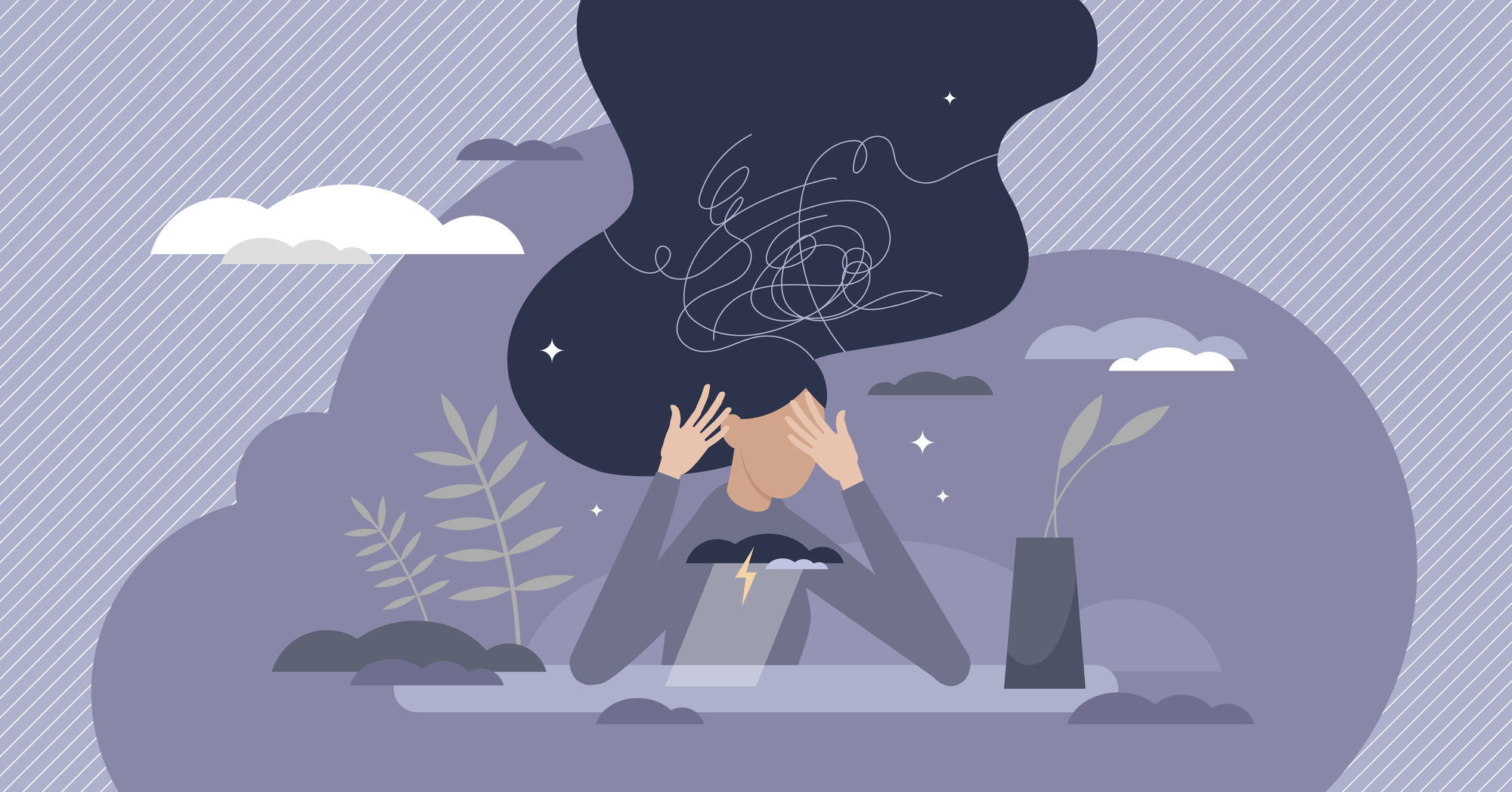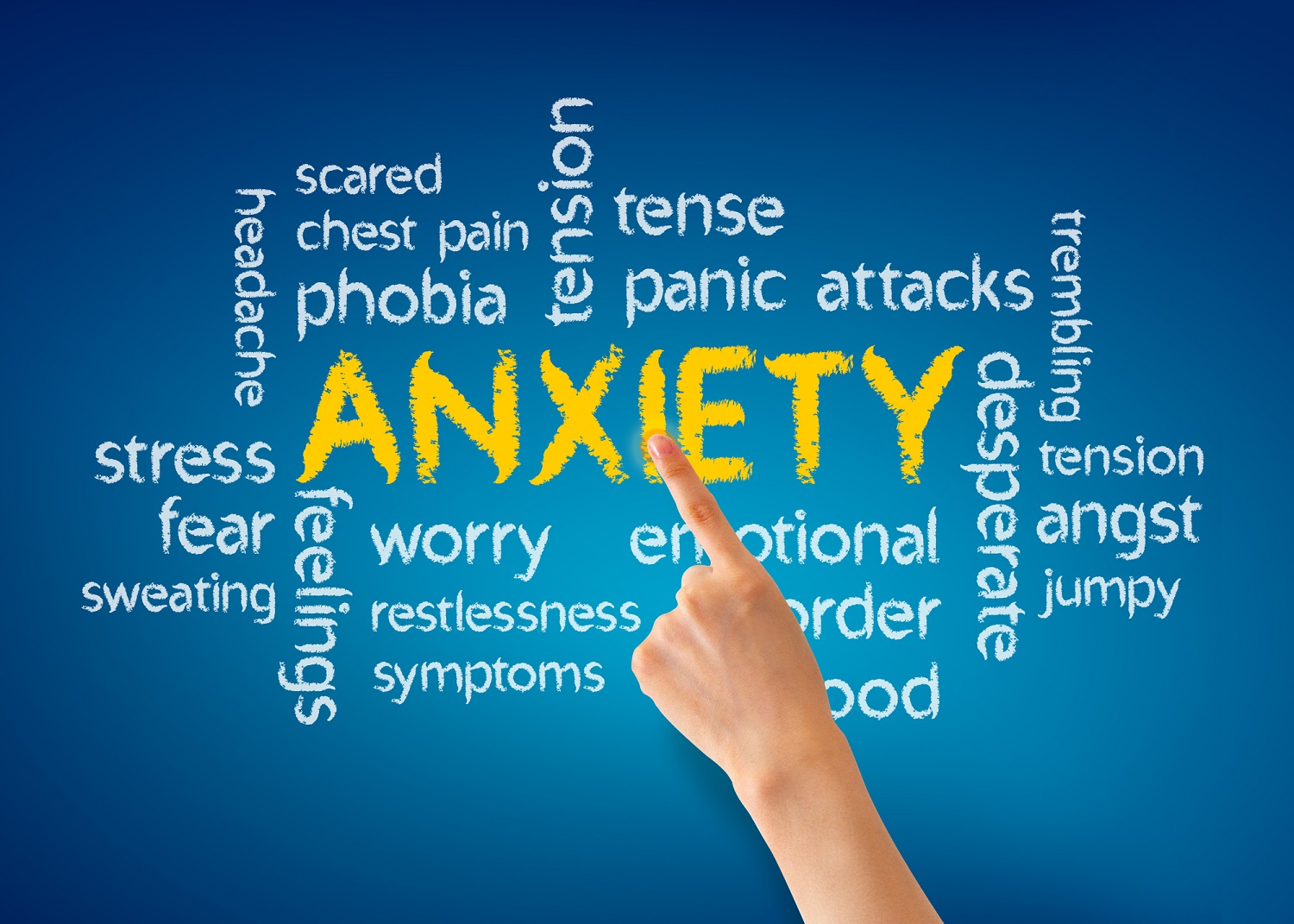Anxiety is an innate human emotion that virtually everyone experiences sometimes. Even people who normally seem calm, cool, and collected can feel a twinge of anxiety — or a tidal wave of worry — in stressful, uncomfortable, or unpredictable situations. But for about one in four teens and nearly
one in five adults in the United States, anxiety isn’t just another ordinary emotion, it’s a powerful disorder that causes immense distress, harms personal relationships, extinguishes opportunities, and interferes with life.
Here at
Bespoke Treatment, we know just how damaging untreated anxiety can be; besides robbing you of your sense of control and diminishing your confidence, it can provoke intense physical symptoms and give rise to other serious health problems. But as debilitating as anxiety disorders can be, they’re also highly treatable. Here are a few major signs that your problem warrants professional help.
Anxiety leaves you sitting on the sidelines
Excessive worry about routine life facets can be debilitating for many people with anxiety. These worries often extend to various areas of life, from professional environments to personal well-being. Identifying specific anxieties can be the first step toward developing targeted strategies for anxiety management:
- Workplace Success: Anxiety related to workplace success often revolves around a fear of not meeting expectations or achieving desired outcomes. Individuals may worry excessively about their performance, the quality of their work, or potential job loss. This type of anxiety can lead to overworking, constant stress, and even avoidance of workplace responsibilities or new opportunities. The anticipation of negative evaluations or feedback can severely impact an individual’s professional and personal life, making it difficult to find satisfaction or progress in their career.
- Personal Health: For those dealing with anxiety, concerns about personal health can become a consuming part of everyday life. This often involves worrying about severe health conditions without substantial evidence, interpreting minor physical symptoms as indications of serious illness, or having undue stress over lifestyle choices impacting long-term health. This type of anxiety can lead to frequent doctor visits, numerous medical tests, and significant mental distress, often affecting the individual’s ability to enjoy life and engage in social activities due to fears of health deterioration.
- Family Issues: Anxiety stemming from family issues usually involves concerns over familial relationships and responsibilities. Individuals may fear the outcomes of unresolved conflicts, the well-being of family members, or their ability to fulfill expectations as a parent, child, or spouse. These worries can strain relationships, leading to a cycle of stress and discomfort within the family unit. Often, the person may feel responsible for managing every aspect of family life, which can be overwhelming and unrealistic, fostering a tense home environment.
- Daily Appointments: Concerns about managing daily appointments and commitments can be particularly stressful for individuals with anxiety. This includes stress over keeping track of schedules, being on time, and fulfilling obligations efficiently. The fear of missing appointments or failing to meet responsibilities can lead to excessive planning and double-checking, which consumes a significant amount of time and mental energy. It can be difficult to focus on the present and enjoy everyday activities when dealing with this type of anxiety, which frequently makes feeling overwhelmed worse.
Recognizing the specific areas where anxiety manifests allows individuals to seek appropriate support and coping mechanisms. Therapeutic interventions, mindfulness practices, and lifestyle adjustments tailored to these concerns can significantly reduce the impact of anxiety on daily living, leading to a more balanced and fulfilling life.
When anxiety shapes your daily existence, it’s harder to engage in positive, productive, or meaningful action. Besides making you feel as if you no longer have control over your own life, this type of anxiety can also trigger feelings of extreme distress that are out of proportion to your actual situation. Without medical intervention, excessive daily anxiety can undermine your energy, make it more difficult to focus, interfere with your sleep, and strain important relationships.
Anxiety affects your body as much as it affects your mind
Anxiety may be a psychological disorder, but many of the symptoms it generates are highly physical. When you experience intense anxiety, your body is inundated with the same “fight or flight” stress hormones that help you react quickly in potentially dangerous situations. Whether one has an anxiety disorder or experiences occasional anxiety, the body and mind react to stress in various ways, often with these symptoms:
- Shortness of Breath: When anxious, the body’s fight-or-flight response is activated, leading to rapid, shallow breathing. This physiological response can make it difficult to take deep breaths, contributing to feelings of suffocation or panic. It serves as the body’s natural reaction to perceived threats, preparing you to either flee or fight back, which unfortunately exacerbates the sensation of breathlessness.
- Elevated Heart Rate: It often manifests physically through an accelerated heartbeat. This reaction is due to the release of adrenaline, a hormone that prepares your body to respond to stress. An increased heart rate can enhance alertness by pumping more blood to muscles and vital organs. However, this can also lead to palpitations or a pounding feeling in the chest, which might be frightening or uncomfortable.
- Muscular Tension: During anxious moments, the body instinctively tenses its muscles as a defense mechanism against stress or danger. This tension can result in soreness, stiffness, or discomfort throughout the body, particularly in the neck, shoulders, and back. Chronic anxiety may lead to persistent muscular tension, which can exacerbate the physical effects of anxiety and contribute to a cycle of ongoing discomfort.
- Lightheadedness: It can also disrupt the balance of oxygen and carbon dioxide in the body due to altered breathing patterns. This imbalance might cause lightheadedness or dizziness, which is the body’s reaction to the decreased oxygen levels reaching the brain. Such symptoms can further increase a person’s anxiety, particularly in public settings or during stressful situations, leading to a vicious cycle of escalating anxiety and physical symptoms.
- Nausea: The gastrointestinal system is particularly sensitive to emotional and psychological stress. Anxiety can lead to increased stomach acid production and muscle spasms in the gut, which in turn can cause nausea. This discomfort can be mild or severe and might lead to decreased appetite or an aversion to food during periods of intense anxiety.
- Chest Pain: Chest pain is a particularly distressing symptom of anxiety. It is typically caused by muscular tension in the chest or changes in breathing patterns. Although chest pain related to anxiety is generally harmless in a physical sense, it often raises concerns about heart health, which can, in turn, increase anxiety, especially if one is unaware that anxiety is the root cause.
Understanding these responses is crucial for managing anxiety effectively. Recognizing the physical manifestations of anxiety can help individuals seek appropriate treatments and coping strategies. With proper management, it is possible to reduce the intensity and frequency of these symptoms, leading to better overall health and well-being.
When an anxiety disorder drags your body through its physical ringer regularly, your symptoms may get more severe or debilitating over time, or they may set the stage for another serious health condition like irritable bowel syndrome (IBS) or chronic headaches.
Anxiety impacts your most important relationships
Avoidance behavior is a psychological phenomenon where an individual steers clear of specific tasks, situations, or people due to perceived negative outcomes or past negative experiences. When this behavior permeates personal relationships, it can create a complex web of misunderstandings and emotional distance. For instance, if someone consistently avoids discussing issues with their spouse, this can lead to a buildup of unresolved conflicts, fostering resentment and a lack of intimacy. Similarly, avoidance in familial settings, such as not attending family gatherings or steering clear of conversations about personal challenges, can lead to misunderstandings. Family members may feel rejected or undervalued, not realizing that the avoidance is rooted in anxiety or a fear of conflict. This lack of open communication prevents the development of deeper emotional connections and mutual understanding, which are crucial for strong relationships.
In professional environments, avoidance behavior can severely impact one’s career progression and the overall workplace atmosphere. Avoiding responsibilities, delaying decision-making, or not engaging with coworkers or managers can be perceived as incompetence or lack of commitment. For someone in a managerial position, not addressing team conflicts or avoiding performance reviews can lead to a decrease in team morale and productivity. Coworkers might feel unsupported and undervalued, which could exacerbate the isolation of the person exhibiting avoidance behavior. Without transparency regarding the root causes of such behavior, colleagues and managers may misinterpret these actions as disinterest in job roles or career advancement, potentially stalling professional relationships and growth opportunities.
Anxiety isn’t the only mental health disorder you’re facing
It’s common for people with anxiety to also have at least one other co-occurring mental health disorder. For many people, anxiety prompts the development of chronic stress,
depression, an eating disorder, or addiction. For others, it’s depression, bipolar disorder, or some other mental health condition that triggers anxiety.
People who live with anxiety are particularly susceptible to depression.
Almost half of adults who are diagnosed with an anxiety disorder also suffer from clinical depression.
When anxiety is accompanied by persistent and overwhelming feelings of sadness, disinterest, or worthlessness, now is the time to get help. Without proper care, anxiety and depression can take a serious toll on your health, jeopardize your well-being, and increase your risk of suicide.
Gain the upper hand over anxiety — for good
No matter how overwhelming, impossible, or persistent your anxiety may feel, we want you to know that your problem is incredibly common and highly treatable. With the right approach, you most definitely can reclaim your life.
Thanks to groundbreaking advances in neuropsychology, medication, and psychotherapy are no longer the only effective solutions for anxiety. Today, transcranial magnetic stimulation (
TMS) offers a noninvasive, drug-free way to help you overcome anxiety and get back to a normal life. TMS works by using magnetic fields to stimulate nerve cells in the brain; specifically, it targets areas known to be involved in mood regulation and anxiety. The procedure involves placing an electromagnetic coil against the scalp near the forehead.
This holistic therapy uses low-amplitude magnetic pulses to recalibrate the abnormal brain wave patterns that drive your usual anxiety response. As your brain activity gradually normalizes throughout your treatment cycle, you can expect to experience fewer and fewer symptoms of anxiety.
Most importantly, TMS is considered safe, with most patients experiencing only mild side effects, if any. Common side effects include headache and scalp discomfort during treatment. The noninvasive nature of TMS makes it a less daunting option for those wary of more invasive procedures or those concerned about the long-term use of pharmaceuticals.
In addition to individual treatment, the incorporation of TMS into broader therapeutic programs represents a holistic approach to managing anxiety. This can include combining TMS with cognitive-behavioral therapy (CBT) or mindfulness practices to enhance outcomes. Such integrated treatment plans are designed to address both the biological and psychological facets of anxiety, ensuring a comprehensive approach to mental health care. The future of TMS may also see it tailored more closely to individual needs through precision medicine. Advances in neuroimaging and genetics might one day allow clinicians to target specific brain circuits more effectively, enhancing the efficacy of TMS. As research continues to evolve, TMS is poised to become an increasingly important tool in the arsenal against anxiety, offering hope to those seeking alternatives to traditional treatment methods.
TMS is an FDA-approved treatment for depression, and a growing body of evidence reveals that it’s equally effective for a wide range of mental health conditions, including anxiety. If you’re ready to confront your anxiety head-on, call our Los Angeles, California, office today, or
click online to schedule a visit with one of our mental health experts any time.
As we continue to explore the depths of anxiety treatment, it’s evident that innovations like Transcranial Magnetic Stimulation (TMS) are reshaping our approach to mental health care. This treatment not only offers hope to those seeking relief from the grips of anxiety but also heralds a new era where medical interventions can be personalized and less invasive. If your journey through anxiety has been marked by frustration with traditional methods, or if you’re seeking a treatment that aligns with a preference for non-pharmacological options, TMS might represent the breakthrough you need. Embracing such innovative treatments can be a pivotal step toward regaining control, reducing symptoms, and fundamentally transforming your approach to mental health challenges.


























